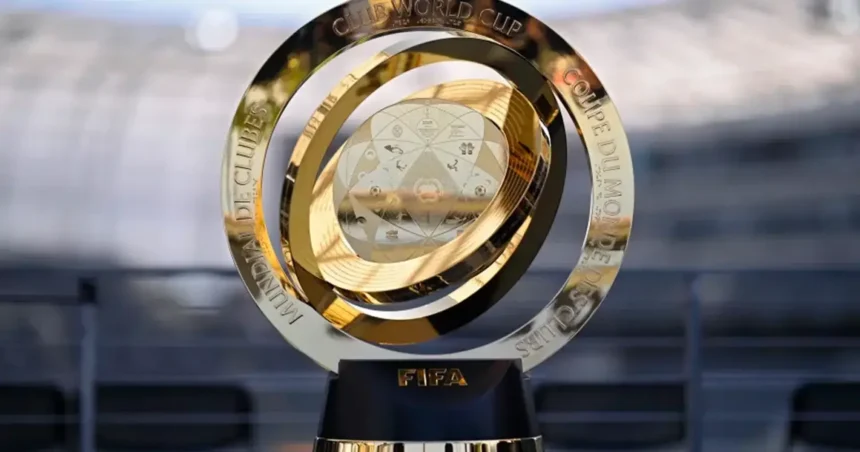FIFA is weighing up a major shake-up to the global football calendar, with fresh reports from The Guardian suggesting the governing body is seriously considering staging the Club World Cup every two years starting in 2029. The proposal, if approved, would mark a significant shift in how elite club football is presented on the world stage and could spark renewed tension between FIFA and Europe’s most powerful leagues.
The latest edition of the tournament was held in the United States this summer, expanded to a 32-team format for the first time. That expansion brought together clubs from across the globe in a World Cup-style event, with enormous prize money at stake. Chelsea, who lifted the trophy, are believed to have pocketed around £85 million – a staggering figure that has left many clubs eager to join future editions.
For European heavyweights such as Real Madrid, Barcelona, Manchester United, Liverpool, and Napoli, the allure of a biennial Club World Cup is simple: money and exposure. Clubs that missed out on this year’s competition are pushing FIFA for more frequent editions, believing it would give them greater chances to cash in on broadcasting rights, sponsorship, and global fan engagement.
Currently, the international match calendar is fixed until 2030, meaning no tournament can be staged in 2027. However, FIFA is reportedly open to scheduling additional editions in 2031 and beyond, once negotiations with stakeholders over the post-2030 calendar begin. This flexibility could allow FIFA to reshape the rhythm of world football, provided it can win the support of leagues, clubs, and player unions.
One of the biggest challenges FIFA faces is the congested nature of the football calendar. Top players already endure grueling schedules that combine domestic league fixtures, continental tournaments, and international duties. To accommodate a biennial Club World Cup, FIFA is said to be exploring the possibility of scrapping the June international break. This would reduce the workload on players while freeing up time for additional club competitions.
Yet such a move would not go uncontested. UEFA, which organizes the Nations League finals in June, has already expressed concern about any disruption to its tournament. European governing bodies argue that FIFA’s proposals risk undermining competitions they have carefully built, while placing unnecessary strain on players who already complain of burnout.
Another aspect of the ongoing debate is the structure of qualification for the expanded Club World Cup. FIFA is reviewing whether to lift the current two-club-per-country restriction. Should that rule be scrapped, multiple clubs from football powerhouses like England, Spain, and Germany could qualify, potentially dominating the tournament. There are also whispers that FIFA could consider expanding the competition even further, from 32 to 48 teams, mirroring the men’s and women’s World Cups.
In terms of hosting, FIFA plans to introduce a formal bidding process for the 2029 edition, a shift from this year’s event, which was handed to the United States without open tenders. Already, interest is brewing in several countries. Qatar, Spain, and Morocco are said to be among the early candidates, each eager to showcase their infrastructure and strengthen their place in world football politics.
Despite the commercial appeal, the idea of a biennial Club World Cup remains highly controversial. The World Leagues Forum, backed by the Premier League and other domestic competitions, has long criticized FIFA for pushing through changes without adequate consultation. Legal challenges could follow if FIFA attempts to force through scheduling adjustments without broader approval from clubs, leagues, and players’ unions.
At the heart of the debate lies a clash between sporting integrity and commercial ambition. For FIFA, the Club World Cup represents an opportunity to globalize club football further, bringing together champions from every continent on a regular basis. For leagues like the Premier League and La Liga, however, the fear is that such changes would devalue their own competitions and overstretch players who are already competing at the limits of their physical endurance.
Still, FIFA appears undeterred. The governing body sees the Club World Cup as a potential crown jewel of its calendar, one that could rival the Champions League in terms of prestige and revenue. The next four years will prove decisive, as discussions with key stakeholders intensify and the battle over football’s future balance of power unfolds.
Whether the Club World Cup becomes a biennial spectacle or remains a quadrennial event, one thing is clear: FIFA’s ambition to reshape the global game is not slowing down. The 2029 edition promises to be a landmark, not just for the tournament itself, but for the wider debate about who truly controls football’s future.



